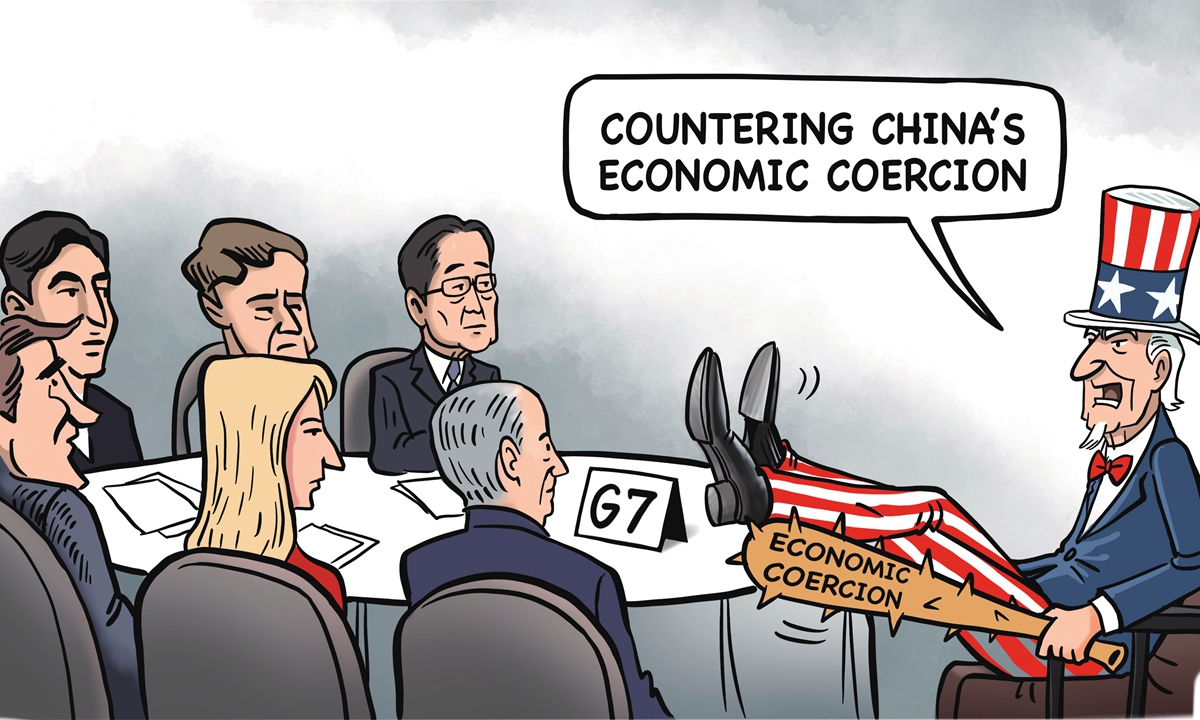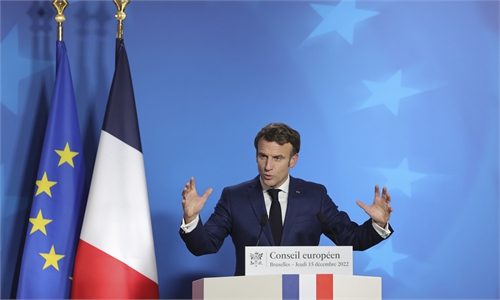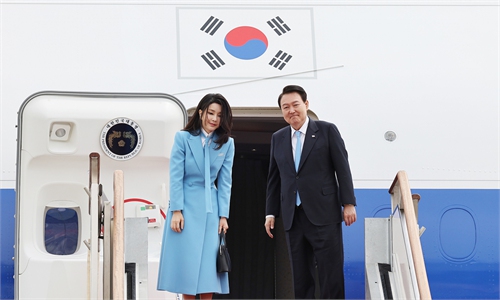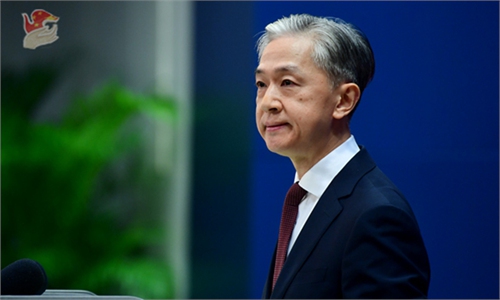
Illustration: Liu Rui/GT
This weekend the G7 summit is being held in Hiroshima, Japan, which will see the leaders of participating countries come together and discuss the most "pressing issues" of the time. In reality, the G7 grouping is dominated by the US, who uses it as a vehicle to push its own agenda and lock the other participants into following, weaponizing it as an exclusive ideological grouping or "clique" which then exerts aggression against other countries.
Unsurprisingly, the US has been using the G7 summit to showcase its anti-China agenda. In the run-up to every summit, it carefully manipulates and steers the "narrative" of the meeting through a series of orchestrated press leaks, deliberately jumping to conclusions as to what the "final statement" will say. By doing this, it boxes the other members into agreeing to it under the threat of losing face if they "break unity."
According to such reports, the US aims to get the summit to call out what it describes as China's so-called "economic coercion," or in other words, the application of its economic influence to "force" other countries to follow its national interests. This terminology has been invented exclusively for the application of China alone, and, strangely enough, does not apply to the use of crippling sanctions by the US and its allies against other countries, despite that China has never done such a thing. Therefore, in singularly aiming to call out China for so-called "economic coercion," the G7 summit manifests an astonishing and bile-filled act of hypocrisy.
Under the interpretation of the so-called "rules-based order" dominated by the US, some countries have privileges to act, and some countries do not. Despite the fact that under international law, all sovereign states are supposedly legally "equal," in reality, such a society is "unequal" because some countries reserve for themselves the rights to do things that other countries cannot. Therefore, when the US cripples a country's economy completely through sanctions to the point of humanitarian catastrophe, such as it has done to Cuba, Syria, Venezuela, or Iran, this is deemed to be "lawful" and does not get any pushback.
However, on the other hand, if China engages in strictly retaliatory measures against countries who contravene its national interests or sovereignty, it is then depicted as so-called "economic coercion" and is deemed a "threat to the rules-based international order." In addition, think tanks, the media and others also use this claim to make the argument that China is not a "reliable" trade or investment partner.
But how does that make any sense? China isn't the one utilizing its currency to forcibly cut off entire countries from the global financial system, making it impossible to do business with. China isn't the one who initiated over 3,000 unilateral sanctions on a country, such as Russia, or maintains all-embracing embargoes on other countries, such as Cuba, and attempts to use these crippling sanctions as a means of regime change.
Rather, this terminology stems from the fact that with China rising, it does not have the unilateral power to enforce this so-called "rules-based order" and impose its will on others. The US expects China to be a "rule taker", not a "rule maker," and therefore believes that any state who is able to shape the international environment to its own national interests is illegitimate and must be suppressed at all costs. This is about the US reserving privileges for itself, and therefore demanding that international society remains fundamentally "unequal" in its favor.
This subsequently leads to the manufacturing of the doublespeak term "economic coercion" which does not apply to America's behavior, which, is of course, the literal definition of "economic coercion," but rather the narrow example of China refusing to buy products from a country that demonstrates relentless hostility toward it, such as Lithuania. In this case, it also resembles the historical logic that Western countries have a right to forcibly impose their ideology and will on China, and reap endless dividends from the Chinese market on terms that they set. The term is therefore vested in the denial that China should ever be allowed to be a power that has influence and in the belief that nobody else other than the US and its allies can impose sanctions. But a multipolar world is rising, and there is nothing they can feasibly do to reverse the reality that China is a major global economic player.
The author is a political and historical relations analyst. opinion@globaltimes.com.cn



